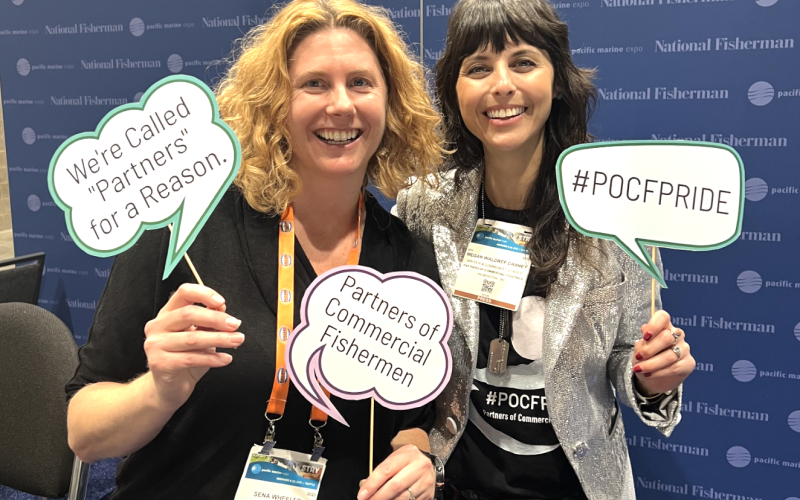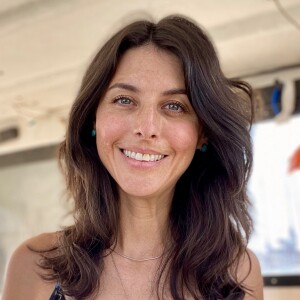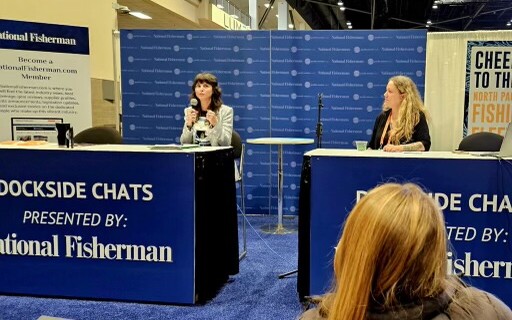While sitting on a panel at the Pacific Marine Expo in Seattle, I saw Sena Wheeler standing in the back, a fifth-generation Partner of a Commercial Fisherman (POCF). She watched on as we discussed ways to recognize the contributions of women in the seafood industry for the “Women in Commercial Fishing Spotlight” Dockside Chat. (Sena is co-owner of Sena Sea Seafood, who I've interviewed for National Fisherman and the blog, pocfpride.com.)
After the panel, we’d meet for the first time and chatted like old friends because that’s what a unique lifestyle like this does – it connects each of us like family. Same with the fishermen. And thanks to this panel.
We had an impressive turnout, including partners, fishermen, and community supporters. I had the honor of representing partners of the industry, thanks to Julie Kuchepatov of Seafood and Gender Equality (SAGE), who dedicated her Dockside Chat to highlighting women and POCFs, who are an underrepresented and essential part of the seafood industry.
I learned a lot.
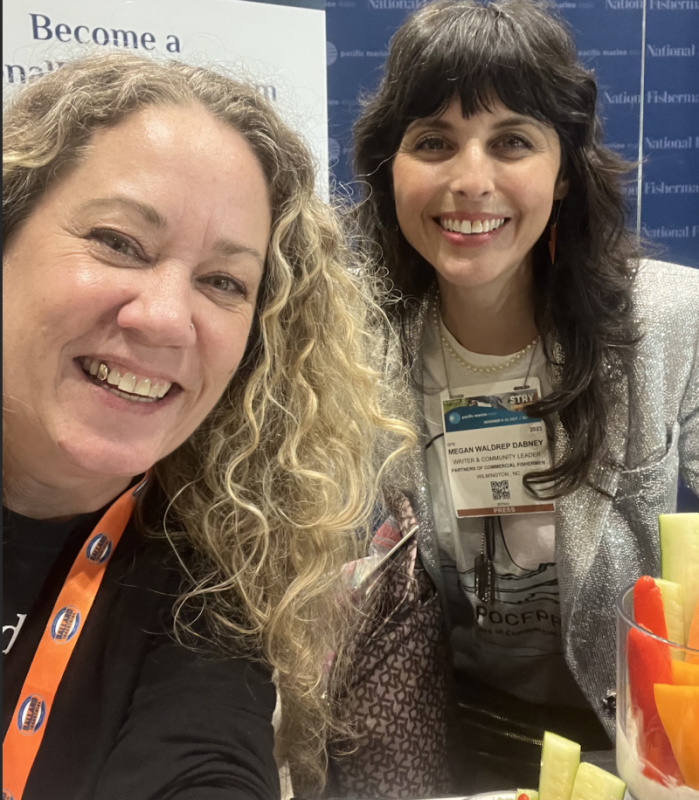
In addition to speaking about the shared experiences of partners worldwide, the Ah-Ha moments came when we opened a Q&A with the audience on challenges faced by women and brainstormed solutions and ideas. More on that in a bit.

To get you up to speed, SAGE’s mission strategies for impact include community building and capacity development, education, and awareness raising around the issues and gender mainstreaming, which is the integration of gender considerations into any tools, policies, activities, certifications, or anything that we do in seafood.
“We want to see gender be a significant component of everything because we believe it'll make everything much stronger,” Kuchepatov said. She goes on to explain SAGE’s three flagship programs, including a Gender Equality Dialogues, “which is a forum for senior leaders in the seafood industry to meet in dialogue and align around issues, then leave equipped with tools that will help them implement the commitments they make towards increasing diversity leadership in their own companies.”
They also offer The Bloom, a networking community for women and genderqueer people, including monthly virtual meetings and group chats where they share job opportunities and helpful articles and uplift each other. “Anyone who works at any node in the seafood sector is welcome to join,” Kuchepotov said. “We have more than a hundred members so far, ranging from oyster farmers to quality control technicians to VPs of Sales of big seafood companies.”
SAGE’s third program is The Conch podcast. “You can find the podcast on any streaming platform. The podcast really brings us back to our mission of uplifting and amplifying diverse voices in the seafood sector,” Kuchepatov said. “It's pretty fun and informative. I've learned a lot, and I really enjoy it. It's a great tool.”
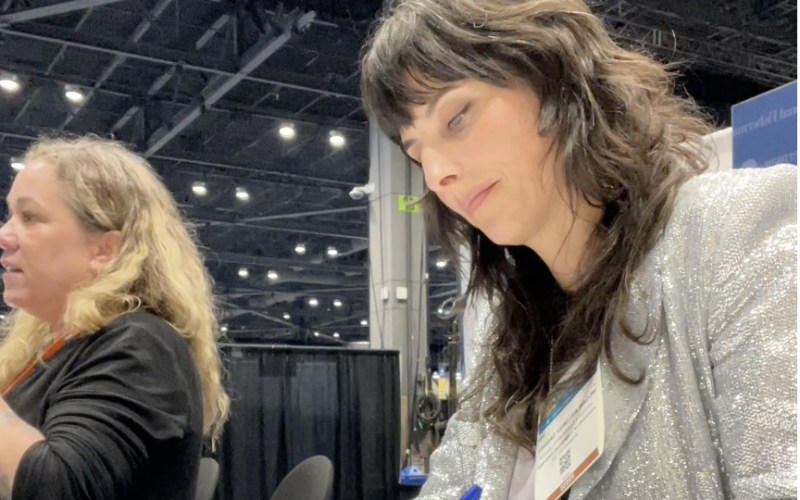
Julie continued to lead the discussion, mentioning a need for more data collection for women's participation in fisheries and the consequences of not recognizing women's contributions, which means limited access to resources and services.
“If that data is collected, it's very binary – man, woman, and that's also not as comprehensive as it should be because we know that there's a wide diversity of genders in the world,” Kuchepatov said. She also discussed the need for women to be included in leadership roles and decision-making.
“Because we don't count and we don't have this data, policies are being made on the premise that this is a male-dominated industry. And it certainly isn't, as we've just discussed, because we know the variety of women's roles in the sector.”
I was itchin’ for the mic when Julie mentioned ways of uplifting women, such as sharing household responsibilities, scheduling meetings to accommodate family responsibilities, and promoting advocacy work.
“We need to lighten the load and create time for women to go and join fisheries management council meetings or other meetings where decisions are being made,” Kuchepatov said. She also brought up a point I had never considered before: being mindful of scheduling meetings. “How many times are meetings held during a time when you have to go pick up your kids or during a time when you have to go to a PTA meeting or another meeting at school?”
(I made a mental note to be more mindful in the POCF community and rescheduled the next Zoom for Private Forum Members to Wednesday, December 6th at 12:30 pm CST, a time to better accommodate school pick-up.)
“These things have to be thought about, scheduling meetings so that a wide swath of people can attend and not just those without responsibilities outside of their office,” Kuchepatov said.
When it was my turn to talk about uplifting Partners of Commercial Fishermen, the first thought that came to mind was the relationship between a partner and a fisherman, thanking and appreciating each partner’s contributions to the relationship and household.
Acknowledgment starts at home.
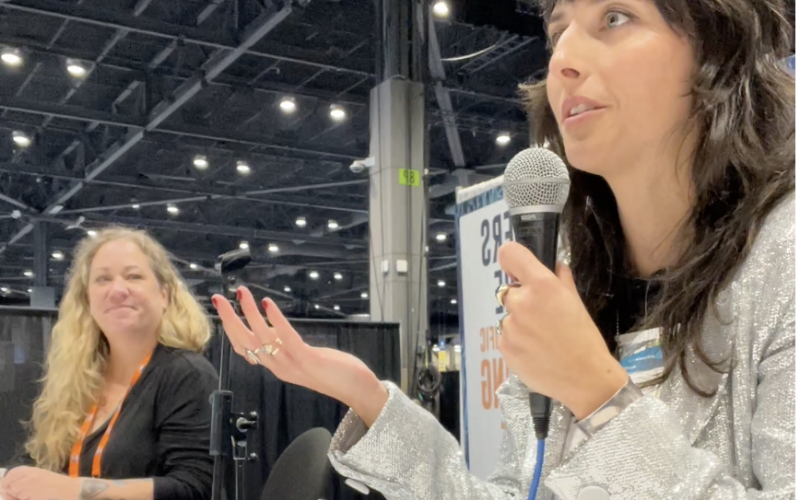
I explained that saying “thank you,” even if it’s something you’d typically do, like taking out the trash or doing the dishes and laundry, goes a long way in building intimacy and strong partnerships. In my relationship, “thank you” means, “I see you, and I love you.” My husband and I actively discussed this to ensure we shared gratitude so resentment dosen’t grow.
(Most people in relationships can understand that concept. Communication takes many forms on all levels – exhausting at times, but worth it!)
This topic wove into the first question from an audience member, a thirty-year fisherman who asked, “How do we support more women in fishing?”
It was then I realized the impact that partners of commercial fishermen have on this subject.
The fishermen mentioned turning away the female crew because their partner wasn’t comfortable with it. I also faced the challenge of accepting a female as the only crew aboard my husband’s boat.
However unfair the stigma, it’s true that many POCFs feel territorial and worried about having a woman aboard. A mind can spiral when we feel the presence of another woman can compromise our relationship. (And hearing stories of relationships starting while working together in Bristol Bay, Alaska, doesn’t help the narrative.)
Though it is unfair to put energy on someone we don’t know, it is a normal human reaction. But as POCFs, we must do the work to acknowledge the feeling and not let it overtake us.
Let’s put it into the partner's perspective: it’s easy to feel insecure when you think of a woman sleeping in close quarters, in remote waters, and working long hours with your fisherman. Most of us don’t know what it’s like working that intensely on a boat. In that way, the mind can get the best of us. But we can change how we react by respectfully discussing feelings with our partner and working to find a compromise.
When it comes down to it, the biggest threat is not female fishermen but insecurities in our relationship. If we’re not being upfront with our feelings to our partner, the lack of communication during a fishing season can only exacerbate it.
But we can move past this to better enjoy our lives, relationships, and mental health.
To gain the perspective of the female fisherman, imagine how it must feel to fish remotely with someone you hardly know or with a bunch of dudes. Not only are they also trying to make a living, but some battle sexual harassment and feel they can’t express emotions because they must “man up” to keep their jobs. (By the way, sexual misconduct is now a crime! You can report, 24/7, by the Coast Guard App called CG Tips.)
The fisherman addressed the consequences of fewer women aboard – the crew shortage that he and many other captains are facing. Women are strong, fierce, and hard workers; what we need right now is all hands on deck.
Partners of Commercial Fishermen are the backbone of the industry, and female fishermen are part of the heart of it all. Once we move past the stigma of women against women, we’ll release stress on ourselves and can keep our hearts open to what comes naturally - love and pride in our community.
The panel left me with a big love bomb that the statement "women supporting women" takes on many faces. When female fishermen are rejected because partners aren’t comfortable, morale suffers, and the industry remains stagnant, as does female-kind.
The conclusion is simple: supporting women by being honest with ourselves helps keep the industry alive.
Even more so, when women support women, we all rise.
